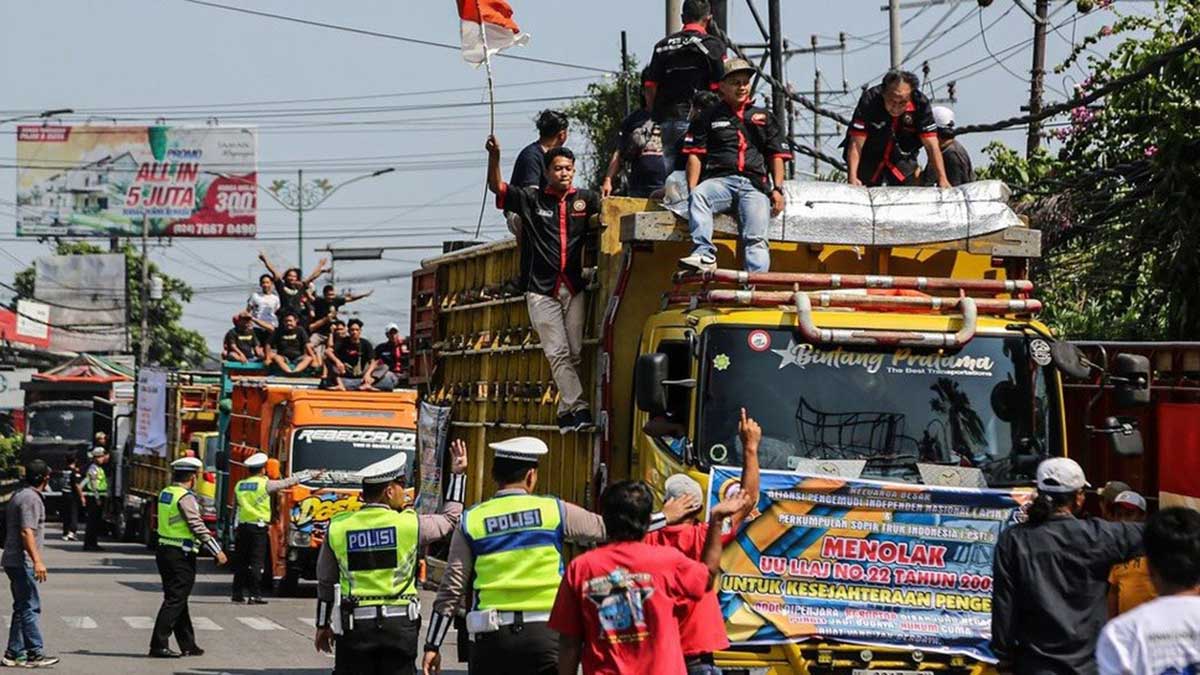Hundreds of truck drivers from various associations staged a large demonstration in Central Jakarta to protest the government’s firm stance on regulating trucks that exceed legal size and weight limits in their ODOL (Over Dimension Over Load) policy. The protest, which took place near Jalan Medan Merdeka Selatan and the Patung Kuda area, caused significant traffic congestion and forced road closures. Protesters, many affiliated with affected groups such as the national driver empowerment organization Rumah Berdaya Pengemudi Indonesia (RBPI), major Muslim labor union confederation Konfederasi Serikat Buruh Muslimin Indonesia (Sarbumusi) and a pan-industry alliance commonly referred to as Aliansi Perjuangan Pengemudi Nusantara (APPN) voiced their discontent with a regulation they argue is unfair and economically damaging. Despite being informed in advance, the demonstration overwhelmed city infrastructure and drew heavy police presence.
The ODOL policy, which prohibits trucks from exceeding size and weight limits, has long been a contentious issue between the government and logistics workers. Indonesia’s Ministry of Transportation, also known as Kementerian Perhubungan Republik Indonesia (Kemenhub) argues that the rule ensures road safety and prolongs infrastructure integrity, drivers claim it unfairly punishes them without providing viable alternatives. Many truckers contend that they are forced into ODOL violations by clients demanding unrealistic delivery capacities. As such, the protest reflects a broader labor struggle rooted in structural inefficiencies in Indonesia’s supply chain ecosystem.
To manage the situation, authorities deployed over 700 officers from Polda Metro Jaya and other regional units to monitor and redirect traffic. Streets around Gambir, Monas, and Balai Kota were either closed or heavily congested, affecting commuters and government workers. The police conducted traffic engineering to prevent complete gridlock, but congestion extended as far as Bundaran HI. The demonstration has again spotlighted the challenge of balancing public order, economic interests, and transportation reform.
While Kemenhub has yet to publicly offer concessions, the protesters have vowed to continue pressing for a review of the ODOL policy. They seek the postponement or cancellation of stricter enforcement, particularly for small-scale and independent drivers. This protest reveals the need for a more inclusive policy dialogue that addresses the welfare of workers as much as national logistics goals. Without a responsive approach, the government risks deepening public resentment and labor unrest within the transport sector.
Alexander Jason – Redaksi



